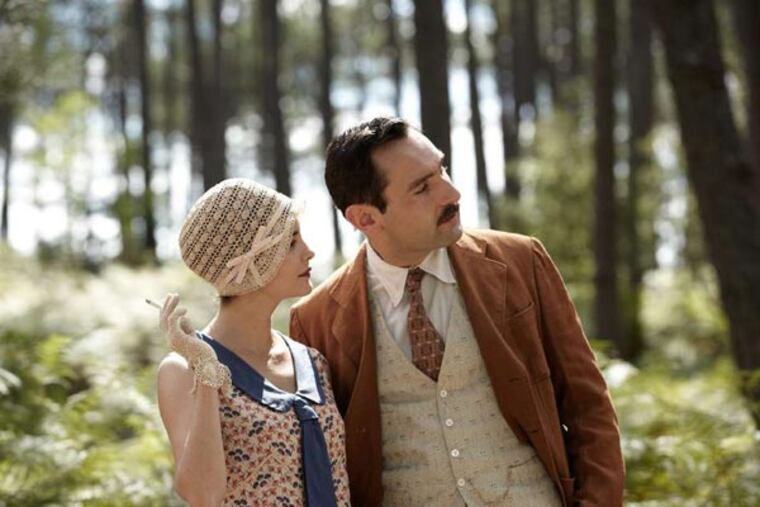'Thérèse': The dour bourgeois life of 1920s France
Thérèse begins with a scene of pure, unalloyed joy: Two teenage girls luxuriate in the summer sun. Best friends and neighbors, Thérèse and Anne belong to two wealthy families who own large tracts of pine-forested land in the Landes region of southwest France.

Thérèse begins with a scene of pure, unalloyed joy: Two teenage girls luxuriate in the summer sun. Best friends and neighbors, Thérèse and Anne belong to two wealthy families who own large tracts of pine-forested land in the Landes region of southwest France.
It's 1922, and there's hope and optimism in the air as Anne teases her friend that she'll end up marrying Anne's handsome brother, Bernard.
This will be the last time anyone smiles in Thérèse, a remarkably pretty, if equally dour, portrait of the bored, oppressive life led by the provincial bourgeoisie.
The film suddenly cuts to 1928. The happy teens have grown into young women whose hopes are systematically crushed.
Portrayed with sour determination by the otherwise effervescent Audrey Tatou, Thérèse is a well-read, intelligent, independent-thinking, and beautiful young woman. Yet despite her promise, her smarts, her spark, she fulfills Anne's prediction and marries the unremittingly dull, pedestrian Bernard (Gilles Lellouche), who finds joy in hunting and counting the acreage of land he owns.
The marriage is good business and Thérèse knows it. She shows not the slightest bit of shock when Bernard extols their marriage as a great way to combine their families' lands into a massive, 11,000-acre tract.
"I'm marrying you for your pines, too," Thérèse replies to her groom. "And I'm not ashamed of it."
Shameless she may be, but Thérèse isn't happy. She finds the routine of married life onerous. Even the birth of a baby daughter can't shake her out of her grating ennui.
In a perverse reaction born of her misery, she is deeply disturbed and further depressed when Anne (Anaïs Demoustier) tells her she has fallen passionately in love with an intense, literate, and wealthy local man. Trouble is, Jean Azevedo (Stanley Weber) is Jewish, and Anne's anti-Semitic clan forbids the marriage.
A jealous and hateful Thérèse agrees to help Anne's family get rid of the boy and steer her to marry a respectable Catholic as lifeless and dreary as Bernard.
Yet, her complicity with the plot doesn't soothe her unquiet mind, and Thérèse decides to get out of her marriage by committing a remarkably perplexing act of violence.
The final film by the late, great French writer-director Claude Miller (An Impudent Girl, Deadly Circuit), Thérèse is the second big-screen adaptation of Nobel-winning author François Mauriac's immensely popular 1927 novel, Thérèse Desqueyroux. (A 1962 version by Georges Franju starred Emmanuelle Riva.)
Sadly, Miller's disappointing, lumbering film doesn't do justice to Mauriac or the novel's razor-sharp dissection of French Catholic bourgeois values.
Thérèse **1/2 (out of four stars)
Directed by Claude Miller. With Audrey Tatou, Gilles Lellouche, Anaïs Demoustier. Distributed by MPI Media.
Running time: 1 hour, 50 mins.
Parent's guide: Not rated (mature themes, mild sexuality, intense existential ennui, bourgeois malaise)
Playing at: Ritz at the Bourse
EndText